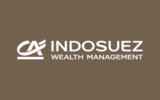Is political risk gone for the year?

Monthly House View - February 2021 - Download here
The scars of the COVID-19 crisis are apparent everywhere, except perhaps in stock market prices...
Propped up by monetary and fiscal policy support and then by annoucements of vaccine developments, markets have ended up looking only at the good news and seem to be immune to any factors of concern or uncertainty.
Yet there are multiple reasons for being more cautious today than at the end of last year: a new pandemic wave linked to the British variant, a macro-economic trend that could disappoint in the first quarter and a year-end market rebound that had already anticipated a potential rebound in results, which ultimately leaves little room for unpleasant surprises.
The political-risk factor could also be a special guest star of 2021. The last months and quarters have been a succession of good news on the political front: an agreement on the European recovery plan, a victory without any major issues for Joe Biden and finally a last minute Brexit deal. However, the factors of political uncertainty could resurface, starting with Europe: even if the markets are used to a regular return of government instability in Italy, thus far the Italian 10-year rate does not include much risk. Angela Merkel’s reign will end in the fall and France will then enter into its next presidential race.
Outside of Europe, the somewhat naive optimism born from the American election will gradually face the reality of an ever present sharp rivalry with China, which will not fade with the departure of Donald Trump from the White House. However, the nature of the rivalry will change with a focus on technology and its link with geostrategic issues. Finally, China’s great political stability does not mean absence of risk for investors, as displayed by the impact of Beijing’s actions on several large Chinese listed companies.
Nonetheless, should politics be a determining factor, how will it be integrated in terms of allocation, and how can we position ourselves? As long as we do not see any systemic risk in the political factor, we will have to chose to endure this possible source of volatility.
In the short-term, it is the pandemic trajectory, vaccination campaigns and economic expectations that will determine whether the markets return to a more volatile phase or not, even if the target of a vaccination rate of 50% of the population between the second and the fourth quarter in most countries helps keep a constructive view. The speed or delay in implementing these actions will ultimately determine whether optimism should prevail over the next few months or whether investors should downgrade their expectations for first quarter business results.
Monthly House View, 22/01/2021 release - Excerpt of the Editorial
January 29, 2021




